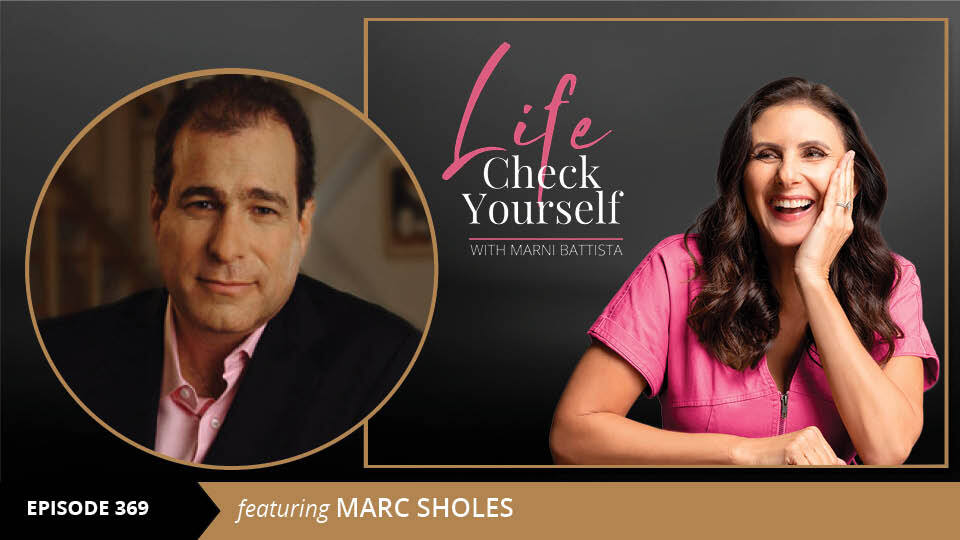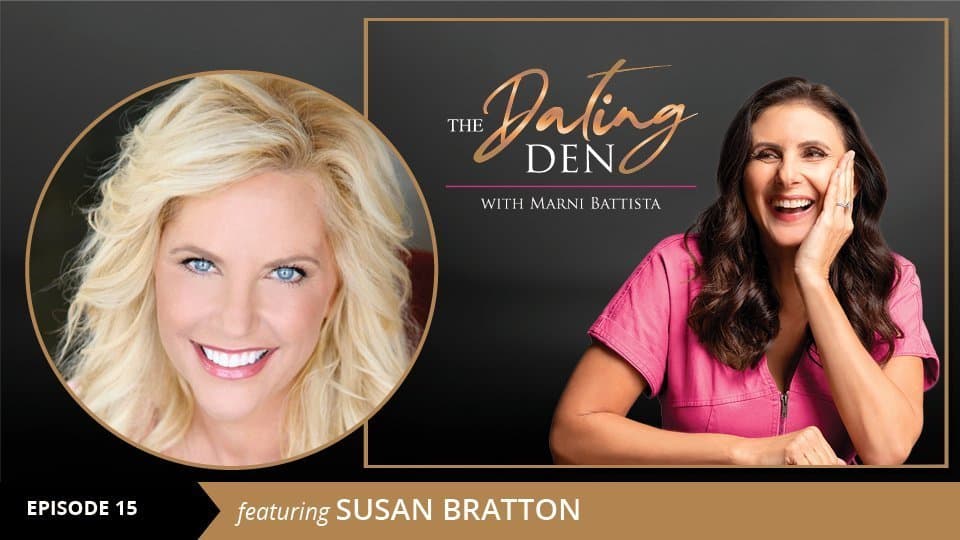Life Check Yourself Episode 369 – Obsessing: Why it Happens and How to Get a Grip Now with Marc Sholes
Marni welcomes Marc Sholes in the Life Check Yourself studio where they have an in-depth conversation about the human mind. The pair delve into existential questions we all have. Why do we act a certain way in our relationships? Why do we get obsessive when the person we like takes days to respond to a text? Why do we form certain patterns and how can we break them? Marc, who has over 25 years of experience in psychotherapy, is the author of “Reset Your Romantic GPS: Why You Steer Toward the Wrong Partners and How to Change Direction for the Better.” The psychoanalyst, and licensed clinical social worker who has helped individuals, couples and groups to get to the root of their ailments. In this episode, Marc and Marni look into attachment theory, and the different attachment styles that we develop as infants, and then take with us into our adult relationships. They discuss the tools and methods used in our road to recovery, and the sense self-empowerment that comes from standing still and being comfortable in the discomfort of our feelings.
- What’s attachment theory all about?
- Discomfort is not your enemy
- It all starts in infancy
- Your attachment style is your love language
- Can another person make you whole?
- How to change the patterns that don’t serve you
Internalized Feelings of Security are Your Life jacket [4:04]
Marc paints a picture of two infants; one born having had their needs met consistently and the other having had their feelings ignored or neglected by their primary caretaker. It is at that stage that our attachment styles begin to take shape.
The successful psychoanalyst explains that an infant who’s had their feelings responded to in a healthy fashion, will go on to internalize a sense of security and safety. And that internalized system is what they will go on to use in their interaction with the outside world. In the opposite scenario, the child will grow up with the crutch of constantly trying to create a bond with a partner, as a result of having had to do that as an infant. How an infant is responded to by their primary caretaker influences their own self-regulation and self-validation as an adult. Those of us with insecure attachment styles have had to find security outside of ourselves, whereas those with secure attachment styles have learned to internalize those feelings.
That person becomes much more preoccupied with the other; how do I meet the other’s needs? What can I do to accommodate the other so the other will love me?
Marni adds that the reason why people with insecure attachment styles stay in unhealthy relationships is because it feels familiar. It mimics those first few years as an infant where needs weren’t being met, and where the child felt insecure.
Chasing Chemistry is an addiction [13:27]
In a relationship, you’re chasing that chemistry high. You’re pulled back again towards an intensity that you felt at a certain moment with your partner, and you’re willing to do anything to feel it again. The insecure individuals want to hold on to that feeling even though, in essence, it’s fleeing. In attempt to not lose the intensity with their partner, they start accommodating them, at times to their own detriment. Feelings from infancy resurface as they struggle to keep that connection with their partner.
Their value has been what they can do for the other, not what the other can do for them.
Change the coordinates on your Romantic GPS [16:45]
All hope is not lost, though. An insecure attachment style can be altered, but it takes work. Marc divulges that the key to change that insecurity is to actively train yourself to become your own regulator, rather than being dependent on your significant other. Through mindful meditation, you’ll manage to change your attachment style. Only by being able to sit with your feelings, and embrace them, can you then begin to accept that it’s actually okay to have them. Discomfort is something that the experienced psychiatrist invites people to feel. Because discomfort is a healthy choice; it means that we’re putting in the work.
It’s a way of realizing that you have it in you to be able to be that regulator and that the other doesn’t have to be that regulator – you have it inside of you.
Another practice that Marc encourages is taking note of your cravings. Understanding why you’re hankering for a certain food, and at what particular moment that manifests, helps with the why. It’s not about abstaining from your cravings but about understanding them and bringing them into your consciousness. Once you’re aware of why you’re making a certain choice, you can begin to change it. The questions you’re asking yourself at this point are empowering.












